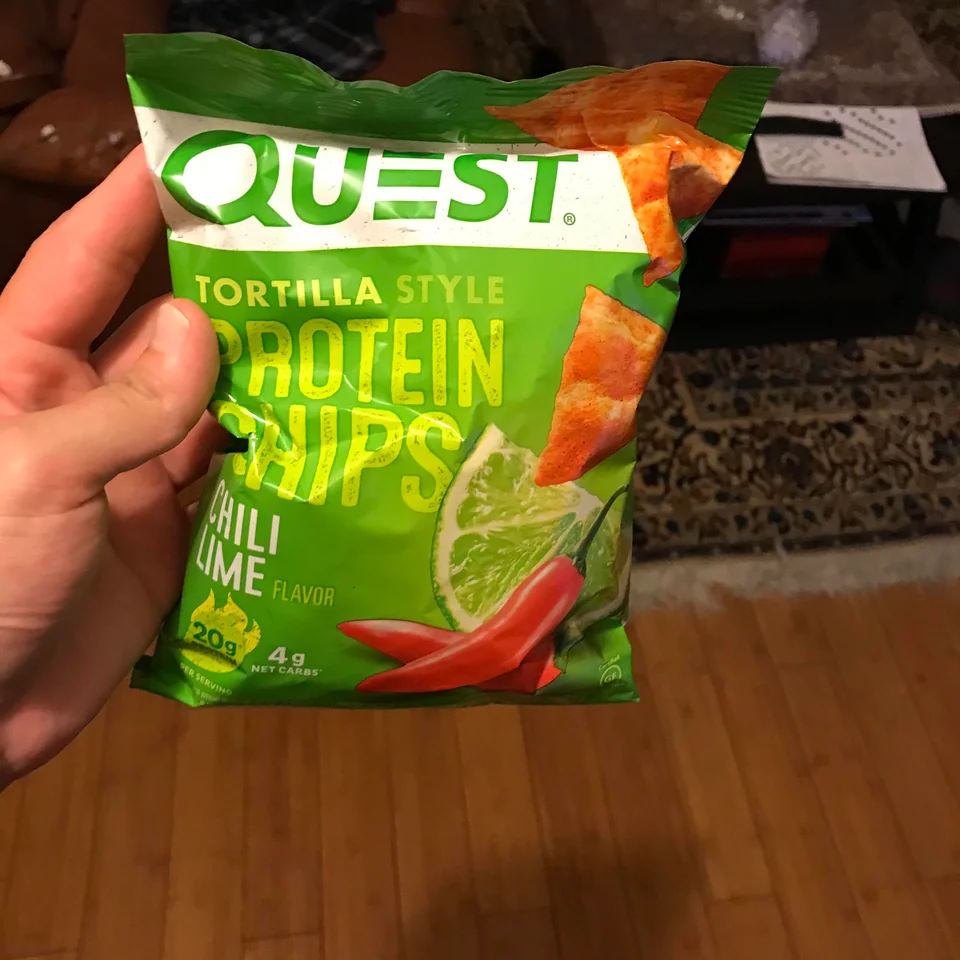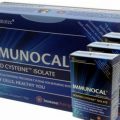Quest Chips are a product line of protein chips produced by Quest Nutrition. These chips are marketed as a healthier alternative to traditional potato chips, offering a higher protein content and lower carbohydrate content.
Quest Chips is produced by Quest Nutrition, a company founded by Tom Bilyeu, Ron Penna, and Mike Osborn in 2010. The company initially started with a focus on creating protein bars that were both nutritious and delicious. However, they expanded their product line to include other snack options, including Quest Chips.
Quest Chips were introduced as a healthier alternative to traditional potato chips. They aimed to provide consumers with a snack option that was high in protein and low in carbohydrates, making them suitable for individuals following low-carb or ketogenic diets. The brand positioned itself as a solution for those seeking a more balanced and nutritious snack option.
One of the key aspects of Quest Chips is their use of alternative ingredients to achieve a healthier nutritional profile. Instead of using traditional potatoes as the base, Quest Chips are primarily made from protein sources such as soy and whey protein isolate. They also incorporate other ingredients like high-quality oils, fiber, and seasonings to enhance the taste and texture.
Over the years, Quest Nutrition has expanded its product offerings, introducing new flavors and variations of Quest Chips to cater to a broader consumer base. They have also continued to emphasize the importance of high protein content and low net carbs, aligning with the brand’s core principles.
Quest Nutrition has gained popularity among health-conscious individuals, athletes, and those looking for convenient, on-the-go snacks that support their fitness goals. The brand has built a strong following and has established itself as a prominent player in the healthy snack market.
Quest Chips are specifically designed to cater to individuals following low-carb or high-protein diets.
Here are some key aspects to consider regarding Quest Chips:
Protein Content: Quest Chips are known for their high protein content. Each bag typically provides around 18-21 grams of protein, which is significantly higher than regular potato chips. The protein comes from a combination of sources, such as milk protein isolate, whey protein isolate, and other protein derivatives.
Carbohydrate Content: Quest Chips are formulated to be lower in carbohydrates compared to traditional chips. They usually contain around 4-6 grams of net carbs per bag. Net carbs represent the total carbohydrates minus fiber and sugar alcohols.
Flavors and Ingredients: Quest Chips come in various flavors, including Barbecue, Salt & Vinegar, Sour Cream & Onion, and more. They are typically made with a blend of ingredients like protein blends, corn fiber, high oleic sunflower oil, and seasonings. It’s worth noting that they may contain artificial flavors and sweeteners, so it’s essential to check the ingredient list if you have specific dietary preferences or restrictions.
Gluten-Free and Non-GMO: Quest Chips are labeled as gluten-free and non-GMO, which may appeal to individuals with dietary sensitivities or preferences.
Nutritional Profile: In addition to their protein and carbohydrate content, Quest Chips are generally lower in fat compared to traditional chips. A typical serving of Quest Chips provides around 120-140 calories, 4-6 grams of fat, and 4-6 grams of fiber.
The nutritional profile of Quest Chips based on typical serving size (usually one bag):
| Nutrient | Amount Per Serving (1 bag) |
| Calories | 120-140 |
| Total Fat | 4-6 g |
| Saturated Fat | 0.5-1 g |
| Trans Fat | 0 g |
| Cholesterol | 0 mg |
| Sodium | 190-240 mg |
| Total Carbohydrate | 4-6 g |
| Dietary Fiber | 4-6 g |
| Total Sugars | 0 g |
| Protein | 18-21 g |
Please note that the values provided are approximate and may vary slightly depending on the specific flavor and variety of Quest Chips. It’s always advisable to check the nutrition label of the particular product you’re interested in for accurate and up-to-date information on its nutritional profile.
Are Quest Chips Healthy
The question of whether Quest Chips are considered healthy depends on various factors and individual dietary needs. Here are some points to consider when evaluating the healthiness of Quest Chips:
- Rich protein content: Quest Chips are often praised for their high protein content. Protein is an essential macronutrient that plays a crucial role in various bodily functions. It helps with muscle repair and growth, supports satiety, and aids in maintaining a healthy weight.
- Low carbohydrate content: Quest Chips are designed to be low in carbohydrates, which can be beneficial for individuals following a low-carb or ketogenic diet. By reducing carbohydrate intake, the body is forced to use stored fat for energy, which may contribute to weight loss and improved metabolic health in some individuals.
- Fiber Content: Many Quest Chip varieties contain a significant amount of dietary fiber. Fiber is important for digestive health, as it adds bulk to the stool, promotes regular bowel movements, and helps prevent constipation. Additionally, fiber can help regulate blood sugar levels and support heart health.
- Gluten-free and soy-free options: Quest Chips offer gluten-free and soy-free options, making them suitable for individuals with specific dietary restrictions or intolerances. This can be particularly beneficial for those with celiac disease or gluten sensitivity.
- Portion control: Quest Chips are typically packaged in individual serving sizes, which can help with portion control. By having pre-portioned snacks, it may be easier to avoid overeating and maintain a balanced diet.
- Snack alternative: Choosing Quest Chips as a snack option over traditional potato chips or other high-calorie snacks can be a healthier choice. Quest Chips generally contain fewer calories, less fat, and more protein than regular potato chips, making them a potentially better option for those looking to manage their weight or improve their overall dietary habits.
However, it’s important to note that while Quest Chips may offer some health benefits, they should not be considered a replacement for whole, unprocessed foods. A balanced diet that includes a variety of fruits, vegetables, whole grains, lean proteins, and healthy fats is still essential for overall health and well-being.
Ultimately, the healthiness of Quest Chips depends on how they fit into an individual’s overall dietary pattern, goals, and preferences. They can be a convenient option for those seeking a higher protein, lower carbohydrate snack. However, it’s important to consider personal dietary needs, ingredient preferences, and consume a variety of whole foods for a well-rounded diet. As always, consulting with a healthcare professional or registered dietitian can provide personalized guidance based on your specific needs and goals.





